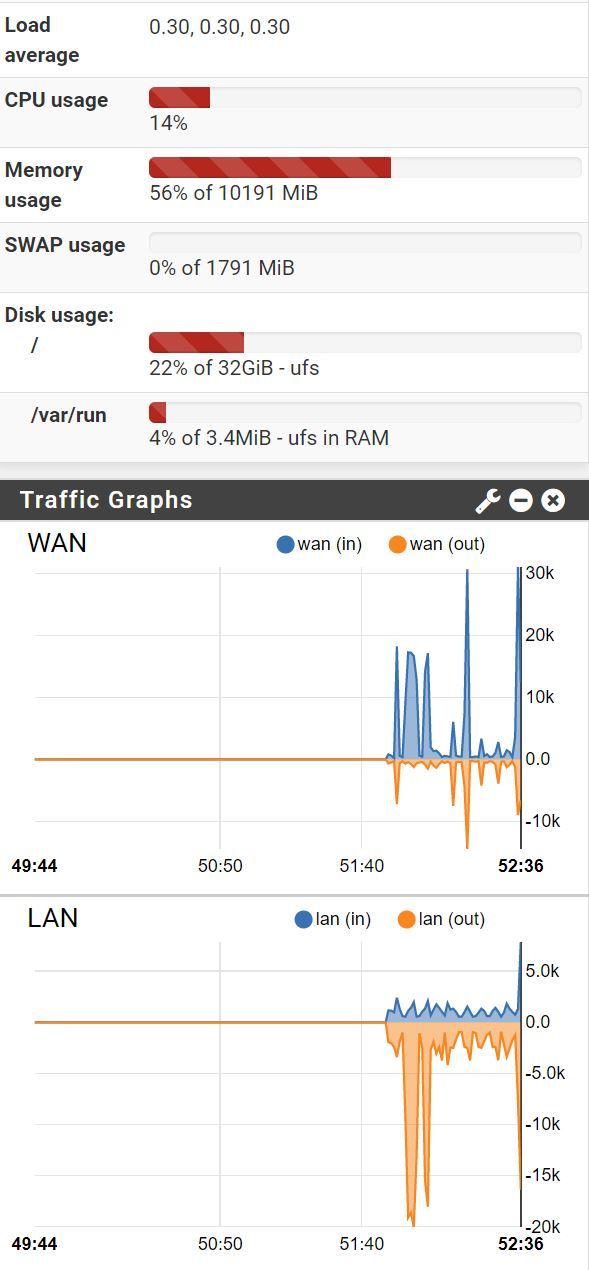ESXi pfsense VS standalone (power savings)
-
hi Folks,
currently I have an ESXi all in one system
Xeon E5-1620v4 3,5GHz 2011-3 Supermicro X10SRA-F 4x 16GB Samsung DDR4-2133 reg. ECC Ram LSI Megaraid 9207-8i Seasonic X650 ATX PSU 6x 10tb WD red RaidZ2 2x Samsung Evo 860 1tb (Jails Mirrored) ESXi 6.7 with FN 11.1, pfSense, Debian (nextcloud, plex), Windows 10 256gb SSD (boot)the power consumption jumps from 90 to 110w depending on pfsense load.
Without pfsense VM running it is around 80.I have installed
pfblockerng around 200k entires snort own dns server squidI would like to use suricata to break encryption and monitor the traffic.
But my Server cannot handle the load with 2vcores and 10gb RAMso my question is:
- will a dedicated box be more efficient in terms of power saving?
- what HW would be recommended for the above targets and 10gbit
- will a CPU upgrade be more beneficial than standalone in order to save power?
would appreciate some discussion on what you think and why

-
@pooperman Why not add at least 1 more virtual processor? They share. Mine runs pretty bad with only one.
-
@provels
sorry I did a mistake, there are 2 vcores and 10gb RAM allocated for the VM -
Short answer, you would save a few watts, but I doubt enough to justify the expense. How many clients on your network?
-
it is for private usage only. So max 4 clients in parallel
-
@pooperman I'd stand with what you got. See the specs and packages I use in my signature. You don't really need to overload pfSense with packages.
-
You will also need a WAN connection, as well as a switch or device to connect to the LAN port.